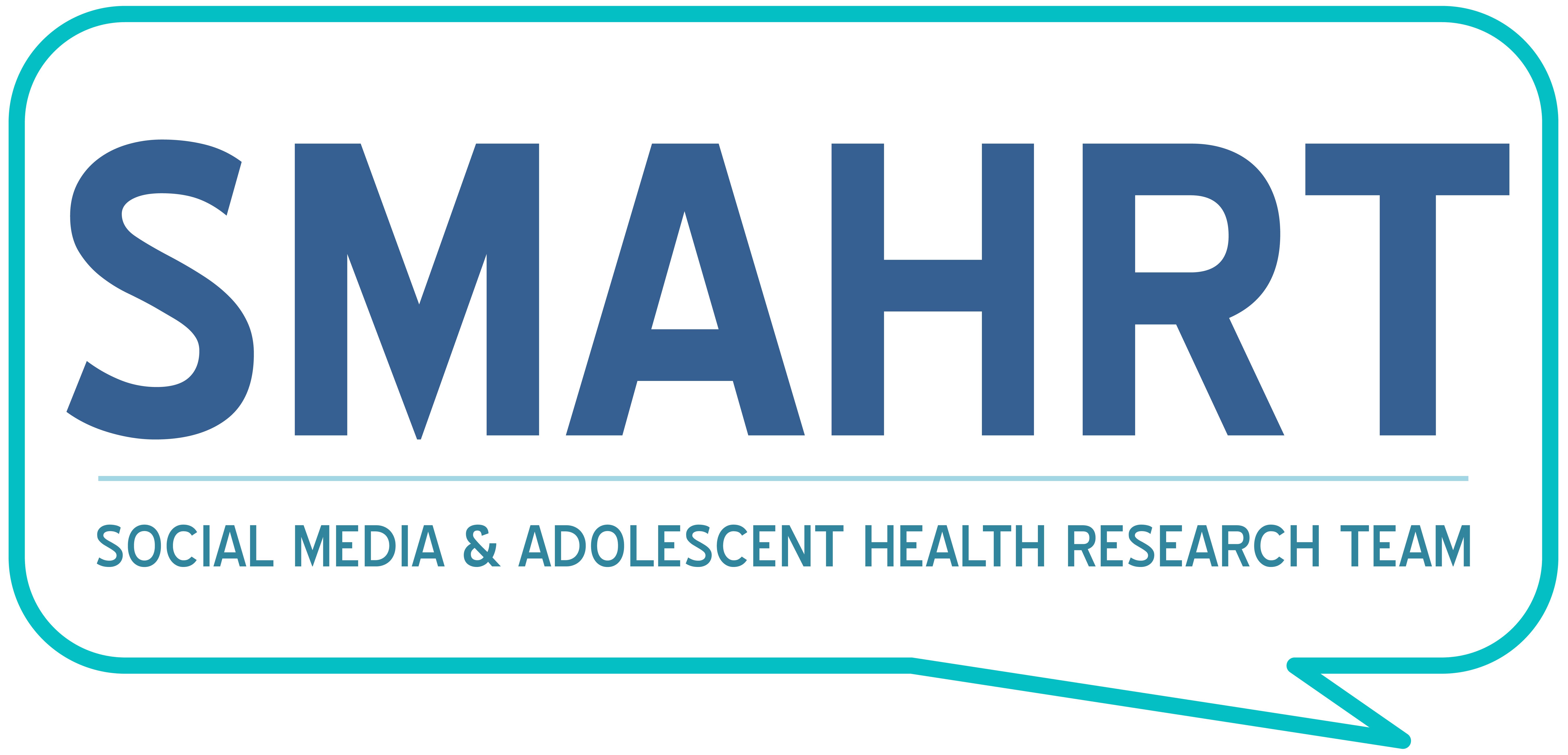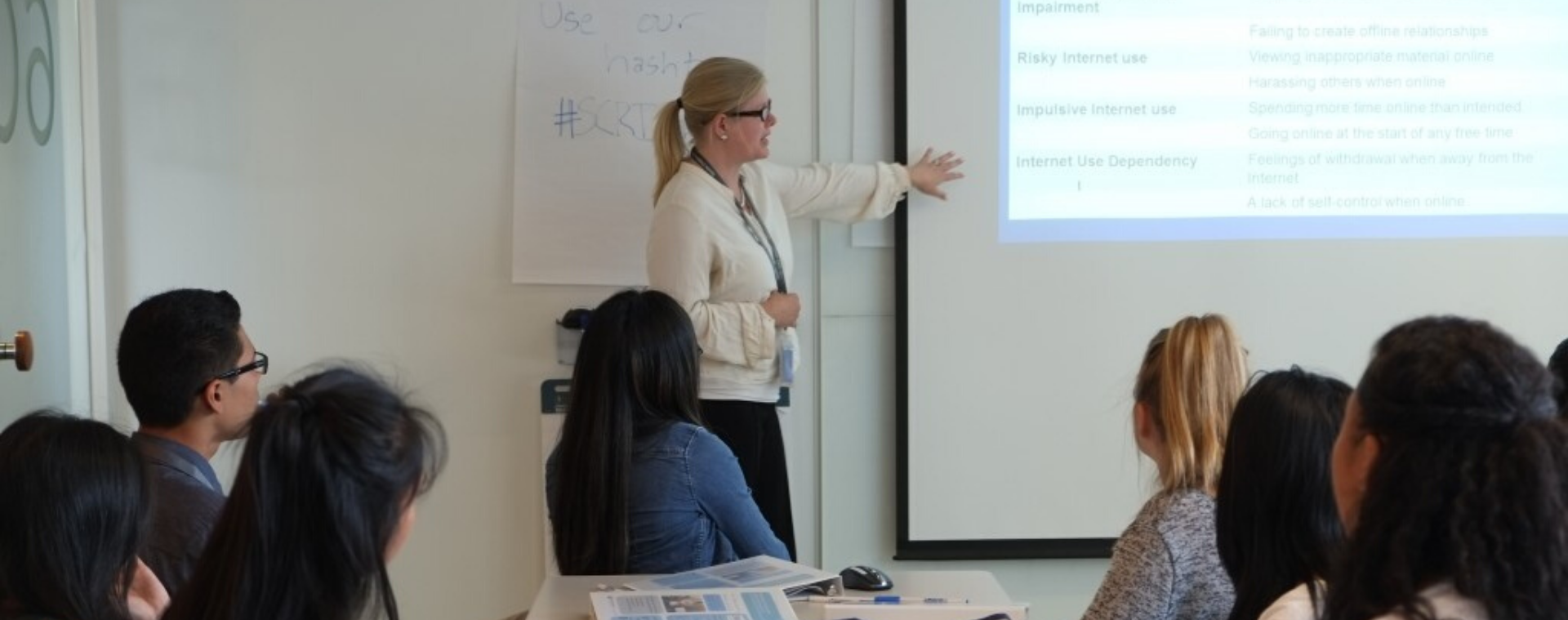Written by: Garrett Waterman
In a concerted effort to improve our understanding of the associations between youth, technology, social media, and mental wellbeing, researchers have been focused on collecting data through surveys, interviews, and questionnaires. This approach has allowed researchers to cultivate large subsets of data that simply did not exist twenty years ago. While these methods have led to countless published, peer reviewed studies, the nature of these methods induce some limitations.
Researchers are well aware that the introduction of bias into their data could invalidate their findings. As such, the methods for data collection and subsequent analysis are of vital importance. Self-report style questionnaires may give researchers access to large amounts of data, however, that data may also be affected by recall bias (Alaa Althubaiti, 2016). Alternatively, experimental studies, while also not free of limitations, allow researchers to empirically measure and record their data without fear of recall bias.
One study conducted by Dr. Megan Moreno in 2014, “Evaluating Facebook Use During a Stressful Event”, utilized pulse and salivary cortisol levels to determine the effects of Facebook use on stress levels (Megan Moreno, et al., 2014). It found that male participants who utilized Facebook during preparation saw noticeably higher stress levels than those in the control group. No significant difference was recorded in female participants. This study highlights the potential benefits of this method of data collection and provides a blueprint for future experimental studies regarding problematic internet use in the field of technology, social media, and youth well-being.
Moreno’s experimental study serves as a continuation of the research evaluating qualities of problematic internet use. As defined in a 2013 study, Problematic internet use (PIU) refers to “Internet use that is risky, excessive or impulsive in nature leading to adverse life consequences, specifically physical, emotional, social or functional impairment” (Moreno et al, 2013). The array of negative outcomes associated with PIU has necessitated the development of a problematic internet use scale. The PRIUSS, refined in a 2014 study, provides an “18-item three-factor model” for adolescent screening (Lauren A. Jelenchick et al., 2014). This model reflects data collected across an array of empirical studies and serves as a tool for pediatricians to assess problematic internet use beyond the metric of screen time.
As shown in the experimental study, Facebook use during a stressful event does not inherently lead to higher stress levels. Codebooks were developed to categorize the type of Facebook use: tool based or distracted use. They found that those who engaged in distracted use recorded higher levels of biological stress than those who utilized Facebook as a tool. The findings, while not entirely conclusive, represent a possibility for Facebook to serve as a tool to lower stress levels. Limitations of the study include a small sample size which hindered the ability for researchers to perform “quantitative analyses regarding gender or biologic response data”(Moreno et al., 2014). Further experimental studies are required to find associations between stress, social media, and gender.
While there exist a sleuth of articles condemning the negative effects of Facebook use associated with stress, new research is illuminating the possible benefits of Facebook use before a stressful event. A 2018 experimental study conducted by Holly M. Rus found that Facebook use could provide a “buffering effect” to stress levels. Similar to Moreno’s 2014 study, Rus assigned participants to browse their personal account before experiencing an acute stressor. While both the control and Facebook group experienced heightened levels of stress in response to the stressor, those who used Facebook “experienced lower levels of psychosocial stress, physiological stress, and rated the stressor as less threatening” (Holly M.Rus, Jitske Tiemensma, 2018). Contrary to the previous understanding that Facebook use intensifies reactions to stressors, Rus posits that Facebook can be utilized to visualize support systems and increase self esteem.
That being said, it is unclear how different types of Facebook use can affect blood pressure, heart rate, and cortisol activity. Additional studies isolating specific Facebook activity in relation to stress will need to be conducted.
Partly due to the limitations of the experiments, there are no definitive conclusions as to the inherent benefits or drawbacks of Facebook use as it relates to stress; however, further experimental studies could shed light on the benefits of specific Facebook behavior. While this article outlines the benefits of experimental studies, a combination of questionnaires, surveys, and youth advisory boards are vital to research in the field of social media. In practice, self-report style data collection greatly outnumbers the amount of experimental studies, and a renewed focus on lab-based research will help pave the way for unique studies in the future
Bibliography
Althubaiti A. (2016). Information bias in health research: definition, pitfalls, and adjustment methods. Journal of multidisciplinary healthcare, 9, 211–217. https://doi.org/10.2147/JMDH.S104807
Holly M. Rus, Jitske Tiemensma,
Social media as a shield: Facebook buffers acute stress, Physiology & Behavior,
Volume 185, 2018, Pages 46-54, ISSN 0031-9384,
https://doi.org/10.1016/j.physbeh.2017.12.021.
Jelenchick, L. A., Eickhoff, J., Christakis, D. A., Brown, R. L., Zhang, C., Benson, M., & Moreno, M. A. (2014). The Problematic and Risky Internet Use Screening Scale (PRIUSS) for Adolescents and Young Adults: Scale Development and Refinement. Computers in human behavior, 35, 10.1016/j.chb.2014.01.035. https://doi.org/10.1016/j.chb.2014.01.035
Moreno, M. A., Stewart, M., Pumper, M., Cox, E., Young, H., Zhang, C., & Eickhoff, J. (2014). Facebook Use During a Stressful Event: A Pilot Evaluation Investigating Facebook Use Patterns and Biologic Stress Response. Bulletin of Science, Technology & Society, 34(3–4), 94–98.
https://doi.org/10.1177/0270467614561674
Megan A. Moreno, Lauren A. Jelenchick, Dimitri A. Christakis,
Problematic internet use among older adolescents: A conceptual framework,
Computers in Human Behavior, Volume 29, Issue 4, 2013, Pages 1879-1887,
ISSN 0747-5632,
https://doi.org/10.1016/j.chb.2013.01.053.


